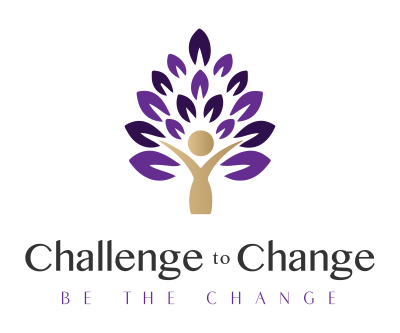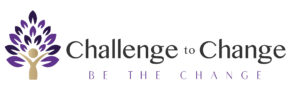GAZA APPEAL
WHEN WAR AND INSECURITY TAKE HOLD, WOMEN BEAR THE HEAVIEST BURDEN OF VIOLENCE, POVERTY AND INEQUALITY.
Since its inception in 2014, Challenge to Change has been prioritising its support for Arab women who are affected by violence, conflict and devastation, and forced to overcome the most daunting challenges. We have helped over 27,ooo women in Gaza, West Bank, and Lebanon. Mostly young females, widows, refugees, or survivors of war, conflict and abuse. Many living in extreme poverty and in conflict areas. We remain committed to providing enduring support throughout and well beyond the current crisis in Gaza.
The Palestinian women we support and our colleagues on ground demonstrate remarkable resilience and strength, but they are significantly affected by the Israeli-Palestinian conflict and the current ongoing war.
Their experiences are multifaceted and complex, and they face a range of challenges and hardships, including but not limited to:
Access to Water and Sanitation: The blockade and the destroyed infrastructure have resulted in lack of basic services, including clean water and sanitation. Women are faced with the impossible burden of ensuring their children and families have access to clean water and adequate sanitation facilities.
Food Insecurity: Many families in Gaza are experiencing food insecurity. Women struggle to ensure their families have food, which can have a profound impact on their mental, maternal and child health.
Healthcare Access: The destruction of medical facilities and the blockade has severely restricted the entry of essential medical supplies and equipment into Gaza, resulting in shortages of medications and limited access to medical treatment. This have a detrimental impact on women’s health, particularly concerning care for the wounded, maternal care, and chronic illnesses.
Inadequate Shelter: Many Palestinians in Gaza live in inadequate housing conditions, and now many are living in overcrowded shelters or on the streets, which is especially challenging for women and their families, affecting their safety and survival. 90% of Gaza’s housing is destroyed or damaged, and the airstrikes are ongoing.
Direct and Indirect Violence: Palestinian women, like men and children, are directly impacted by violence, including bombings, shootings, and attacks. Many lose family members, homes, or livelihoods as a result of the conflict. 76% of the population in Gaza are women and children.
Trauma and Psychological Stress: The constant threat of violence and exposure to the horrific traumatic events leads to psychological trauma, including anxiety, depression, and post-traumatic stress disorder. This has a profound impact on the mental health and well-being of Palestinian women.
Displacement: Many Palestinian women and their families have been displaced from their homes due to the conflict, either temporarily or permanently. This displacement disrupts their lives and often results in overcrowded living conditions, inadequate access to basic services, and loss of property.
Freedom of Movement: In peaceful times, the restrictions on movement in and out of Gaza affect women who may be unable to access educational opportunities, visit family members in other regions, or travel for medical treatment. In war, they have nowhere to escape and save the children.
Economic Hardships: The Israeli-Palestinian conflict has led to economic instability, high unemployment rates, and restricted access to employment opportunities across the Occupied Palestinian Territories. Even in peaceful times Palestinian women face economic hardships, making it challenging to provide for their families.
Education Disruptions: Palestinian girls and young women constantly experience disruptions in their education due to conflict, such as school closures, curfews, and transportation difficulties. This limits their access to quality education and future opportunities. According to UN, 625,000 students in Gaza are with no access to education. The Gaza’s education facilities have been hit.
Family and Community Impact: Palestinian women often shoulder additional responsibilities during times of conflict, caring for family members, supporting their communities, and dealing with the emotional and practical consequences of loss and injury.
Gender-Based Violence: Conflict situations can exacerbate gender-based violence, and Palestinian women may be at risk of violence from various sources, including within their communities and as a result of the conflict itself.
Living Under Occupation: In areas of the Palestinian territories under Israeli occupation, Palestinian women face restrictions on their daily lives, including movement, access to resources, and economic opportunities.
Lack of Security: Ongoing conflict creates an environment of insecurity, where Palestinian women may not feel safe in their homes or communities, leading to further stress and trauma.
How You Can Help:
Donate: Every dollar counts! Your financial support enables us to purchase additional supplies, transport aid, and respond swiftly to emerging needs.
Offer counselling online: If you are a qualified Arab speaking trauma-informed counselling and therapy practitioner, consider volunteering your time.
Share: Spread the word about our campaign on social media, within your network, and to friends and family. Increased awareness can lead to more support.
How Your Donation Will Make a Difference:
Food and Hygiene Supplies: A simple meal can bring comfort and nourishment to those affected by the conflict in Gaza. We are providing food items, as well as hygiene supplies like soap, toothpaste, and sanitary products.
Blankets and Tents: As temperatures drop, the need for warmth becomes even more critical. We are supporting families with blankets and tents to provide much-needed shelter and protection from the cold.
Baby Formula and Diapers: We are providing baby formula and diapers, to ensure that infants and toddlers receive the care they deserve, even in the midst of the most challenging circumstances.
Counseling and Therapy: We are providing access to professional counseling and therapy.
Support Us Today: By supporting our campaign, you are providing a lifeline to Palestinian women who are suffering immensely.
Thank you for your support, and for standing with these resilient women.
- 161
Volunteers worldwide
- 23
- 27,000
- 1.5M


